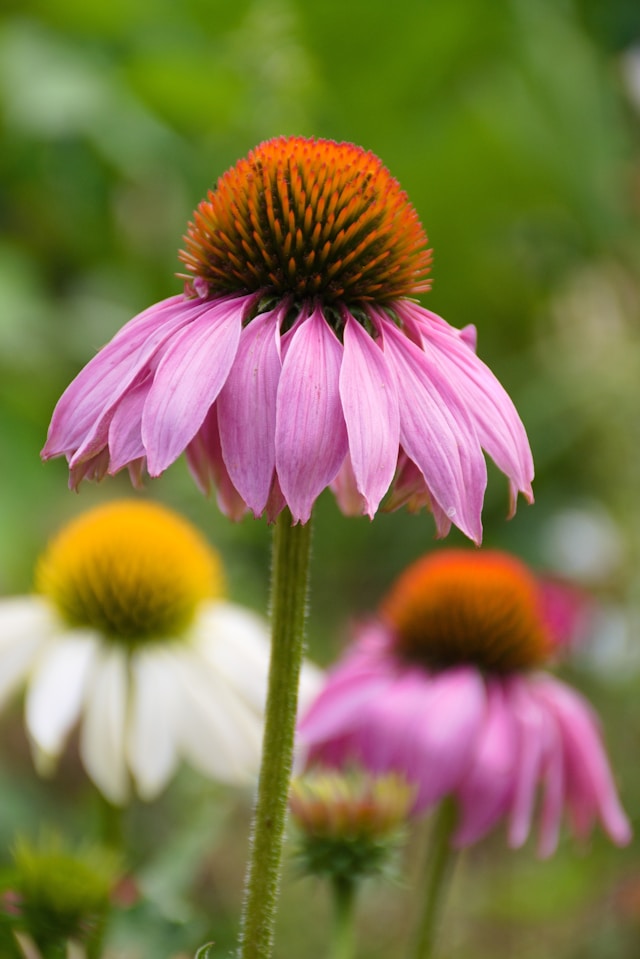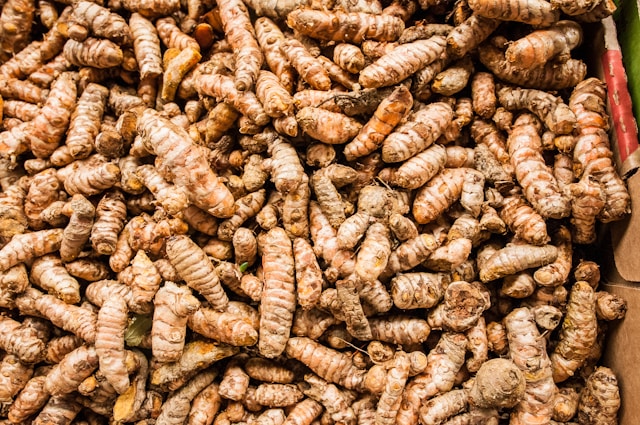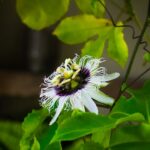Medicinal plants have been used for ages to cure a variety of illnesses. From ancient civilizations to modern medicine, these natural remedies have played a vital role in maintaining health and well-being. In this article, we will explore the top 10 medicinal herbs and their remarkable healing properties.
What Are the Top 10 Medicinal Herbs?
- Aloe Vera
- Chamomile
- Echinacea
- Ginger
- Ginseng
- Lavender
- Peppermint
- Rosemary
- Sage
- Turmeric
1. Aloe Vera

Aloe vera is a succulent plant with calming and anti-inflammatory effects. Its gel-like substance contains vitamins, minerals, and antioxidants that promote wound healing, reduce inflammation, and alleviate skin conditions such as burns, sunburns, and acne.
2. Chamomile

Chamomile is a daisy-like herb that has been used for centuries to promote relaxation and sleep. It contains compounds that have calming and sedative effects, making it an effective natural remedy for anxiety, insomnia, and stress.
3. Echinacea

Echinacea is a group of flowering plants that have immune-boosting properties. It contains compounds that stimulate the production of white blood cells, which help fight off infections and viruses. Echinacea is commonly used to prevent and treat colds, flu, and other respiratory infections.
4. Ginger

Ginger is a versatile herb that has been used for centuries to treat nausea, vomiting, and digestive issues. It contains compounds that have anti-inflammatory and antioxidant properties, making it effective in reducing pain, inflammation, and oxidative stress.
5. Ginseng

Ginseng is a root that has been used in traditional Chinese medicine for centuries to enhance energy, stamina, and cognitive function. It contains compounds that have antioxidant and anti-inflammatory properties, making it beneficial for reducing fatigue, improving memory, and boosting the immune system.
6. Lavender

Lavender is a fragrant herb that has been used for centuries to promote relaxation and sleep. It contains compounds that have calming and sedative effects, making it an effective natural remedy for anxiety, insomnia, and stress.
7. Peppermint

Peppermint is a hybrid herb that has been used for centuries to treat digestive issues, nausea, and headaches. It contains compounds that have antispasmodic and analgesic properties, making it effective in reducing pain, inflammation, and muscle spasms.
8. Rosemary

Rosemary is an evergreen herb that has been used for centuries to improve memory and cognitive function. It contains compounds that have antioxidant and anti-inflammatory properties, making it beneficial for protecting the brain from damage and improving memory.
9. Sage
Sage is a fragrant herb that has been used for centuries to treat a wide range of ailments, including sore throats, indigestion, and menstrual cramps. It contains compounds that have antimicrobial, anti-inflammatory, and antioxidant properties, making it beneficial for reducing pain, inflammation, and infections.
10. Turmeric

Turmeric is a spice that has been used for centuries in traditional Indian medicine to treat a wide range of ailments, including inflammation, pain, and digestive issues. It contains compounds that have antioxidant, anti-inflammatory, and antibacterial properties, making it beneficial for reducing pain, inflammation, and infections.
How to Use the Top 10 Medicinal Herbs for Different Purposes
Medicinal herbs can be used in a variety of ways to treat a wide range of ailments. Here are some common methods of use:
1. Teas:
- Aloe vera: Steep aloe vera gel in hot water for 10-15 minutes. Strain and drink to soothe sore throats, reduce inflammation, and boost the immune system.
- Chamomile: Steep chamomile flowers in hot water for 5-10 minutes. Strain and drink to promote relaxation, reduce anxiety, and improve sleep.
- Echinacea: Steep echinacea roots or leaves in hot water for 10-15 minutes. Strain and drink to boost the immune system and prevent or treat colds and flu.
- Ginger: Steep ginger slices or grated ginger in hot water for 5-10 minutes. Strain and drink to relieve nausea, vomiting, and digestive issues.
- Ginseng: Steep ginseng root in hot water for 10-15 minutes. Strain and drink to enhance energy, stamina, and cognitive function.
- Lavender: Steep lavender flowers in hot water for 5-10 minutes. Strain and drink to promote relaxation, reduce anxiety, and improve sleep.
- Peppermint: Steep peppermint leaves in hot water for 5-10 minutes. Strain and drink to relieve digestive issues, nausea, and headaches.
- Rosemary: Steep rosemary leaves in hot water for 5-10 minutes. Strain and drink to improve memory and cognitive function.
- Sage: Steep sage leaves in hot water for 5-10 minutes. Strain and drink to soothe sore throats, reduce inflammation, and treat menstrual cramps.
- Turmeric: Steep turmeric powder in hot water for 10-15 minutes. Strain and drink to reduce inflammation, pain, and digestive issues.
2. Tinctures:
- Tinctures are concentrated extracts of herbs that are made by soaking the herbs in alcohol or vinegar. They are typically taken in small doses (1-2 droppersful) and can be added to water or juice.
- Tinctures can be made from any of the top 10 medicinal herbs listed above.
3. Capsules and Tablets:
- Capsules and tablets are convenient ways to take medicinal herbs. They are typically standardized to contain a specific amount of the active ingredient.
- Capsules and tablets can be purchased over the counter or prescribed by a doctor.
4. Topical Applications:
- Some medicinal herbs can be applied topically to the skin to treat a variety of conditions.
- For example, aloe vera gel can be applied to burns, sunburns, and acne. Chamomile tea bags can be applied to tired eyes to reduce puffiness and inflammation.
5. Culinary Uses:
- Many medicinal herbs can also be used in cooking.
- For example, ginger can be added to stir-fries, soups, and teas. Rosemary can be used to flavor meats, vegetables, and breads. Turmeric may be incorporated into curries, soups, and smoothies.
Important Note: It is important to note that medicinal herbs can interact with certain medications. It is always best to consult with a healthcare professional before using medicinal herbs, especially if you are taking any prescription medications.




